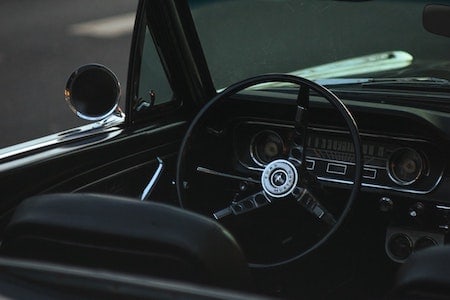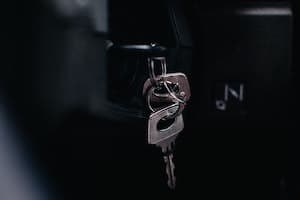The very best way to diagnosing a car that won’t start is by the symptom of the car. The symptom can tell you exactly what the problem is and does not take very long nor is it difficult. Follow along to learn the key symptoms why your car won’t start and what they mean.
I guarantee the few extra minutes now carefully reading and educating yourself of your car’s simple ignition system to resolve your current problem will benefit you again in the future. Sadly, there will be a time in the future that you will need to diagnose a similar car starting issue. Yes, I can tell the future.
Sometimes it is most helpful to discover the issue with your car by determining what is NOT the problem. So in order to do that, follow along carefully to these symptoms and they will guide you what the issue may be as well as what is not the issue.
1. Cranking But Wont Start (makes a rrr-rrrr sound)
What You Can Rule Out as NOT the Problem
This indicates the battery and the alternator are performing their function and are not the issue. If the car turns over this means the starter is turning the engine and the issue lies in either fuel or spark.
What the Problem May Be
The problem may be the engine is not getting fuel.
Old gas can cause the engine not to start
The problem may be no spark to the engine.
No spark to the engine may be caused by:
- Disconnected or bad spark plug wires
- Bad distributor cap or rotor
- Bad ignition coil
- Blown fuse
What to Do Next

Check first the easiest things. First take a look at the fuses and there is an ignition fuse that should be the main one to check on.
Check on the gas ensure that there is a fresh full tank of gas.
I say FRESH because gas older than a year can prevent an engine from starting. If your gas is more than a year old, just drain it and fill up with fresh gas.
Look inside the throttle body while someone tries to start the car to physically see the gas pump in.
To determine if spark is the issue, remove a spark plug and with one end installed in the spark plug wire boot, hold it against the engine block as someone else turns the engine over
Remove the distributor cap and check the inside for wear on the contacts. Any wear means it should be replaced. Generally it is replaced with the rotor because the rotor is just beneath the distributor cap and they are both extremely inexpensive.
2.Clicking Sound but Won’t Start
What You Can Rule Out as the Problem
The starter solenoid is not the problem. This is because the clicking noise comes from the starter solenoid.
The starter is not the problem. If the solenoid is fine, then more than likely the starter is just fine.
What the Problem May Be
The battery is most likely dead and is the problem
The alternator may have been the cause of the dead battery. The alternator is what charges the battery.
What to Do Next
Inspect the battery looking for a date indicating when the battery was made. If the battery is over 5 years old, then get a new battery and leave the alternator alone. The alternator is more than likely fine and the battery is simply old.
3. The Car is Completely Silent When You Turn the Key
What You Can Rule Out as NOT the Problem
Nothing yet, but if the lights do not work then it is your battery and the starter and alternator are probably in good shape.
What the Problem May Be
Do the lights not work? – If your lights do not work or if they are very dull then the battery is the problem. Your battery is dead and could be from an old battery or an alternator that has failed.
If the lights DO work and are bright – it may be the starter solenoid, or a fuse that is the issue. But most likely the issue is a poor connection to the battery.
What to Do Next
Jump start
To decide if the battery is more likely the issue, inspect the battery for a date telling you when the battery was made. A battery older than 5 years old is the culprit and your alternator is just fine.
Go buy a new battery.
Pro Tip: Costco has the best deals on car batteries
Tap on the starter solenoid and try starting the car again to rule that out as a possibility.
Remove and reinstall the battery cables. If they are dirty or corroded, clean them. If they are loose then tighten them. Inspect the ground connection to the chassis of the car and the engine block. Clean and tighten them if needed.
You will be surprised at how often the answer is a poor electrical connection.
Take your time and look carefully!


